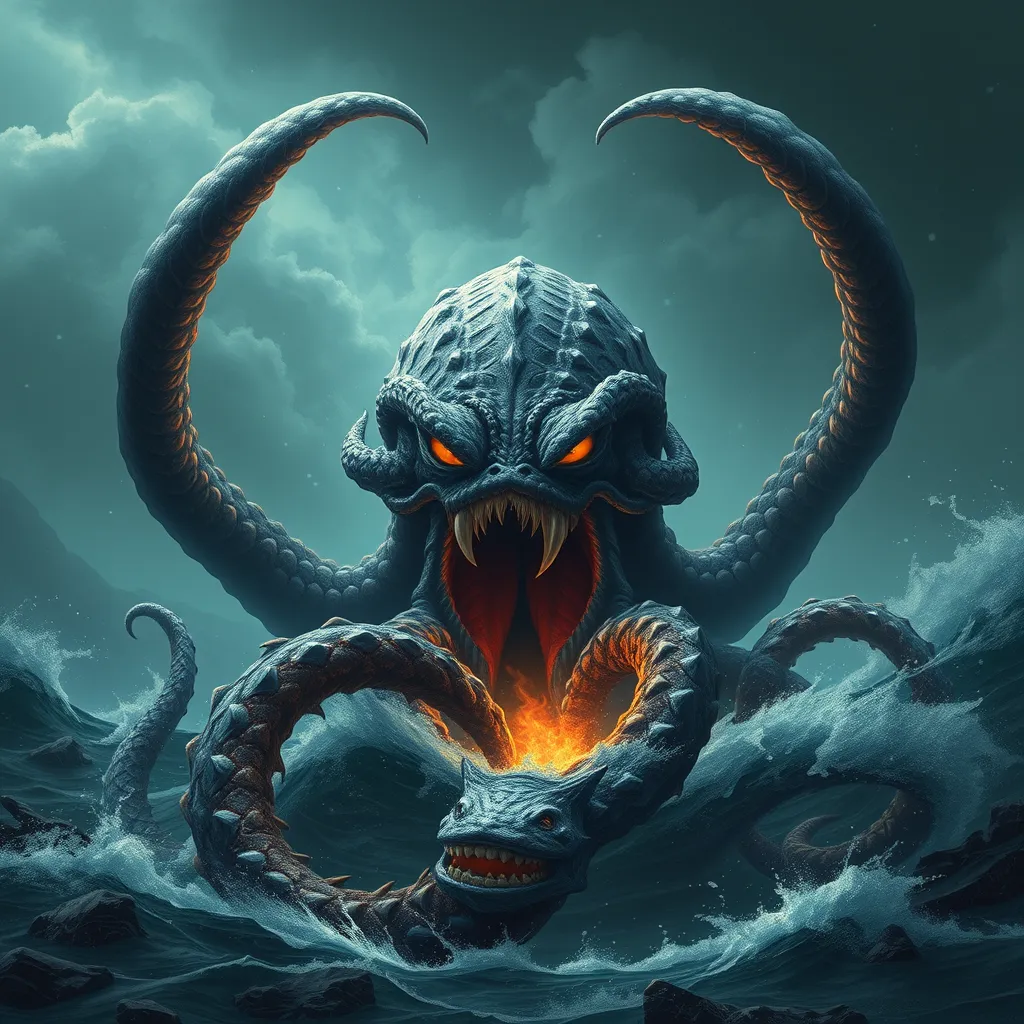The Kraken’s Legacy: Exploring the Impact of the Myth on Modern Culture
I. Introduction
The Kraken, a legendary sea monster often depicted as a giant octopus or squid, has captured the imagination of people for centuries. Its myth has origins steeped in the lore of sailors and the fears of the deep ocean, making it a significant figure in various cultural narratives.
In folklore and literature, the Kraken symbolizes the unknown and the dangers that lurk beneath the waves. It serves as a cautionary tale for seafarers and a representation of humanity’s relationship with nature. This article aims to explore the Kraken’s influence on modern culture, examining its historical origins, literary representations, and its role as a cultural symbol.
II. Historical Origins of the Kraken Myth
The Kraken myth can be traced back to early Norse and Scandinavian folklore, where it was often described as a fearsome creature that terrorized sailors off the coasts of Norway and Greenland.
- A. Early references in Norse and Scandinavian folklore: The first documented mentions of the Kraken appeared in 1700s texts, but the creature’s origins likely predate this, rooted in the oral traditions of seafarers.
- B. The evolution of the Kraken narrative over centuries: Over time, the Kraken evolved from a terrifying sea monster into a more complex figure, symbolizing both fear and fascination with the ocean’s mysteries.
- C. The Kraken in maritime history and sailors’ tales: Sailors often attributed mysterious disappearances and shipwrecks to the Kraken, giving it a prominent place in maritime mythology.
III. The Kraken in Literature and Media
The Kraken has been a prominent figure in literature and media, inspiring countless authors and filmmakers.
- A. Iconic literary works featuring the Kraken: One of the most notable examples is Jules Verne’s “Twenty Thousand Leagues Under the Sea,” where the creature embodies the terror of the deep.
- B. The Kraken in modern literature and fantasy genres: Contemporary authors have continued to draw on the Kraken myth, integrating it into fantasy narratives and reimagining its characteristics.
- C. Representation in film and television: The Kraken has appeared in various films, including “Pirates of the Caribbean,” where it serves as a formidable antagonist and a visual spectacle.
IV. The Kraken as a Symbol in Popular Culture
In popular culture, the Kraken has transcended its mythological roots to become a symbol of adventure, mystery, and the unknown.
- A. The Kraken in video games and interactive media: The creature often appears as a formidable foe in video games, enhancing the sense of danger and unpredictability in oceanic adventures.
- B. Merchandise and branding: The Kraken has inspired a range of merchandise, from tattoos to T-shirts, often symbolizing a love for the sea and a penchant for the mysterious.
- C. The creature in art and graphic novels: Artists and graphic novelists have reinterpreted the Kraken, exploring its physicality and the emotional responses it evokes in their works.
V. The Kraken in Scientific and Environmental Discourse
The intersection of the Kraken myth with marine biology and environmental awareness highlights the creature’s relevance beyond folklore.
- A. The relationship between myth and marine biology: The legend of the Kraken may have been inspired by real-life sightings of giant squids and other large sea creatures, blurring the lines between myth and reality.
- B. The impact of oceanic mysteries on environmental awareness: The fascination with the Kraken can help raise awareness about marine conservation and the importance of protecting ocean ecosystems.
- C. The Kraken as a metaphor for the unknown in ocean exploration: As scientists continue to explore the depths of the ocean, the Kraken represents the mysteries yet to be discovered.
VI. The Kraken and Modern Myth-Making
In contemporary storytelling, the Kraken continues to thrive, adapting to new cultural contexts and societal fears.
- A. The resurgence of mythological creatures in contemporary storytelling: The popularity of fantasy genres has led to a revival of interest in mythical creatures, including the Kraken.
- B. The role of online communities in preserving and reinventing the Kraken myth: Online forums and social media allow fans to share interpretations and create new narratives surrounding the Kraken.
- C. How the Kraken reflects societal fears and fascinations: The Kraken embodies humanity’s fears of the unknown and the uncontrollable forces of nature, making it a relevant symbol in today’s world.
VII. Cultural Interpretations of the Kraken
The Kraken myth varies across cultures, showcasing its adaptability and the diverse interpretations of the creature.
- A. Variations of the Kraken myth across different cultures: While often depicted as a giant sea creature, interpretations of the Kraken can differ in form, characteristics, and symbolism based on regional folklore.
- B. The Kraken in contemporary folklore and storytelling: The creature continues to evolve, appearing in new forms of storytelling that reflect modern values and concerns.
- C. The impact of globalization on the evolution of the Kraken myth: As cultures intersect, the Kraken myth incorporates elements from various traditions, enriching its narrative and significance.
VIII. Conclusion
In summary, the Kraken has left an indelible mark on modern culture, influencing literature, art, and our understanding of the ocean. Its legacy as a symbol of fear, mystery, and the unknown continues to resonate in contemporary storytelling.
The enduring fascination with the Kraken reflects humanity’s imagination and our ongoing quest to explore the depths of both the ocean and ourselves. As we look to the future, the Kraken will undoubtedly remain a powerful figure in cultural narratives, reminding us of the mysteries that still lie beneath the surface.
